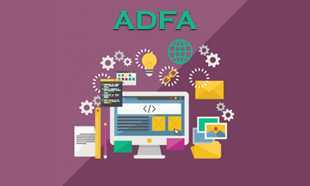Description
Course Name: Advanced Diploma in Financial Accounting
Course Id: ADFA/Q1001.
Eligibility: Candidates are generally required to have completed 10+2 or an equivalent qualification.
Objective: The program aims to provide students with advanced skills in financial accounting, preparing them for roles in accounting, auditing, taxation, and financial management. It includes a detailed understanding of accounting principles, financial reporting, cost accounting, taxation, and business law.
Duration: Six Months.






Debit/Credit Card, Wallet, Paytm, Net Banking, UPI, or Google Pay.



• A soft copy (scanned) of your certificate via email within 7 days of examination.
• A hard copy (original with official seal and signature) sent to your address within 45 day of declaration of result.

Online Examination Detail:
- Duration- 120 minutes.
- No. of Questions- 60. (Multiple Choice Questions).
- 10 Questions from each module, each carry 10 marks.
- Maximum Marks- 600, Passing Marks- 40%.
- There is no negative marking in this module.
| How Students will be Graded: | ||
| S.No. | Marks | Grade |
| 1 | 91-100 | O (Outstanding) |
| 2 | 81-90 | A+ (Excellent) |
| 3 | 71-80 | A (Very Good) |
| 4 | 61-70 | B (Good) |
| 5 | 51-60 | C (Average) |
| 6 | 41-50 | P (Pass) |
| 7 | 0-40 | F (Fail) |







Syllabus
Introduction to Financial Accounting: Fundamentals of Accounting and Accounting Principles, Accounting Concepts and Conventions, Double-Entry System of Accounting, Financial Statements and Their Importance, Role of Accounting in Business Decision-Making. Bookkeeping and Ledger Management: Journal Entries and Posting in Ledgers, Cash Book, Trial Balance and Adjustments, Bank Reconciliation Statements, Depreciation Accounting Methods, Errors and Rectification in Accounting.
Financial Statements and Analysis: Preparation of Profit and Loss Account and Balance Sheet, Cash Flow and Fund Flow Statements, Ratio Analysis for Financial Decision Making, Financial Statement Interpretation and Reporting, Corporate Financial Reporting Standards, Auditing and Internal Controls: Principles and Types of Auditing, Auditing Standards and Procedures, Internal Audit and Risk Management, Fraud Detection and Prevention, Preparation of Audit Reports.
Cost Management & Corporate Accounting: Introduction to Cost Accounting and Costing Methods, Cost-Volume-Profit (CVP) Analysis, Budgeting and Variance Analysis, Activity-Based Costing (ABC) and Marginal Costing, Cost Control and Performance Evaluation. Corporate Accounting: Accounting for Share Capital and Debentures, Amalgamation, Merger and Acquisition Accounting, Holding Company Accounts and Consolidated Financial Statements, Valuation of Shares and Goodwill, Liquidation and Winding Up of Companies.
Taxation and GST (Goods and Services Tax): Introduction to Direct and Indirect Taxes, Income Tax Computation for Individuals and Businesses, Tax Deduction at Source (TDS) and Tax Filing Procedures, GST Structure, Input Tax Credit and Returns Filing, Tax Planning and Compliance.
Business Finance and Financial Services: Financial Markets and Institutions, Working Capital Management, Capital Budgeting and Investment Decisions, Risk Management in Finance, Introduction to Derivatives and Financial Instruments, Banking and Financial Services: Overview of Banking Operations and Regulations, Types of Accounts, Loans and Credit Facilities, Digital Banking and FinTech Innovations, Risk Management in Banking, Anti-Money Laundering (AML) and KYC Compliance.
Accounting Software and IFRS & GAAP: Introduction to Accounting Software (Tally ERP, QuickBooks, SAP), Automated Accounting Processes, Payroll Management and Compliance, Financial Reporting and MIS (Management Information Systems), Cloud-Based Accounting and Digital Transactions. International Financial Reporting Standards (IFRS) & GAAP: Understanding IFRS and Its Global Impact, Differences Between IFRS and Indian/US GAAP, Application of IFRS in Financial Statements, Compliance and Regulatory Framework, Practical Implementation of IFRS in Businesses.
Job Opportunities after completion of Advanced Diploma in Financial Accounting Course:
After completing the Advanced Diploma in Financial Accounting, graduates gain access to various career opportunities in accounting, finance, and taxation.
Career Options:
- Accountant
- Manage financial records, bookkeeping, and reconciliation.
- Tax Consultant
- Prepare and file tax returns, and advise on tax planning.
- Financial Analyst
- Analyze financial data and create reports for decision-making.
- Auditor
- Conduct internal or external audits for organizations.
- Payroll Manager
- Oversee salary processing and compliance with labor laws.
- Accounts Payable/Receivable Executive
- Manage vendor payments and client invoicing.
- Budget Analyst
- Monitor budgets and ensure efficient allocation of resources.
- GST Practitioner
- Handle GST compliance and filing for businesses.
- Banking Executive
- Work in roles related to loans, investments, or customer accounts.
- Entrepreneur
- Start your own accounting or financial consultancy.
Key Sectors:
- Accounting firms
- Corporate finance departments
- Banks and financial institutions
- Tax consultancies
- Government agencies
Salary Range:
- Entry-Level (0–2 years): ₹2.5–₹5 LPA
- Mid-Level (3–5 years): ₹5–₹8 LPA
- Senior-Level (5+ years): ₹8–₹12 LPA or more
Salaries depend on role, industry, and expertise.

